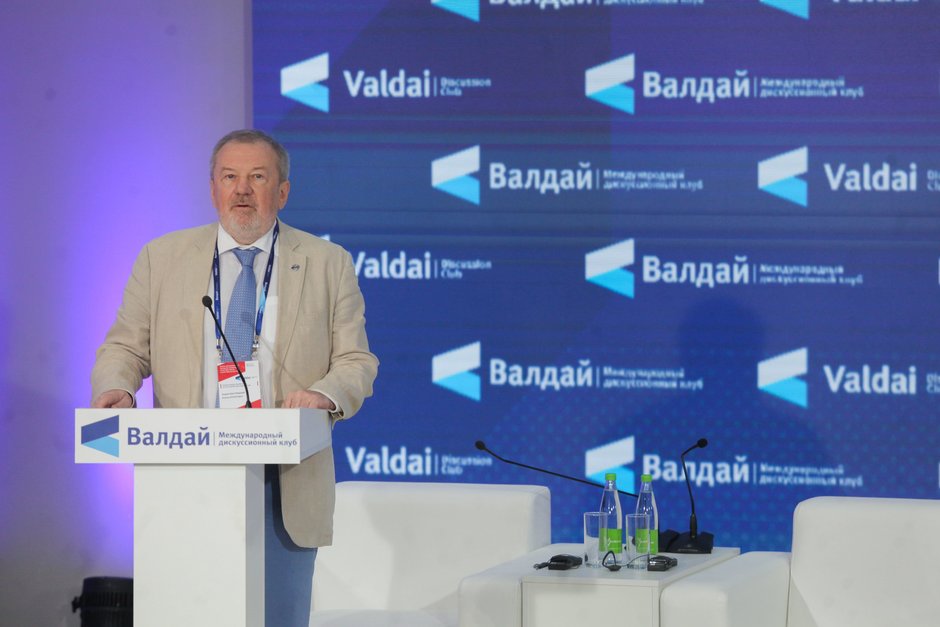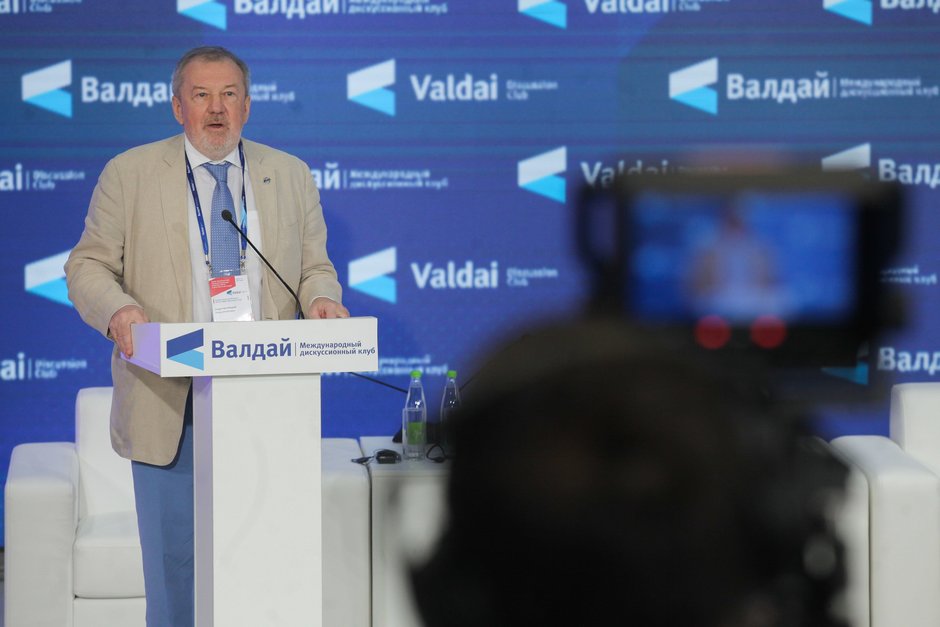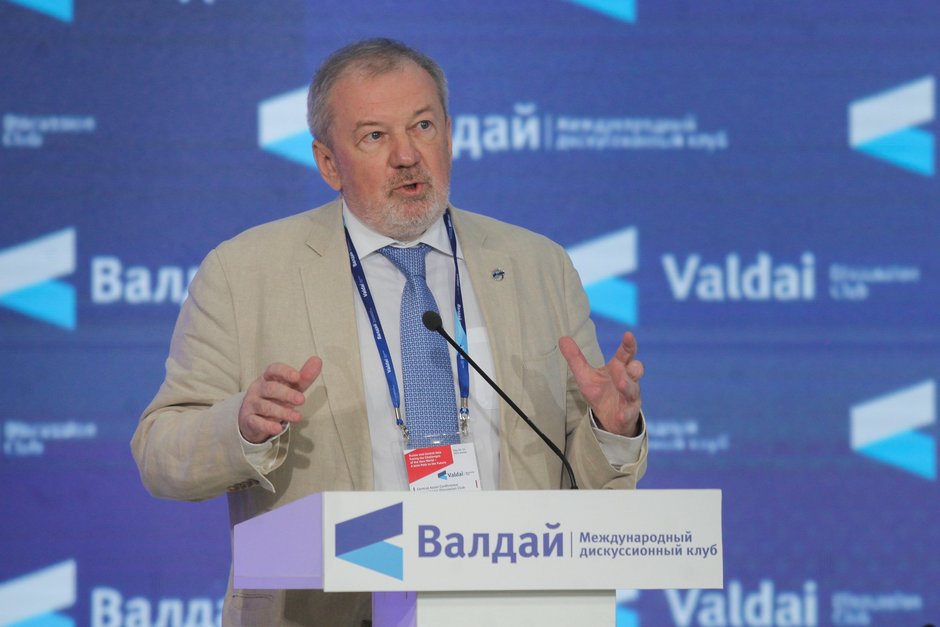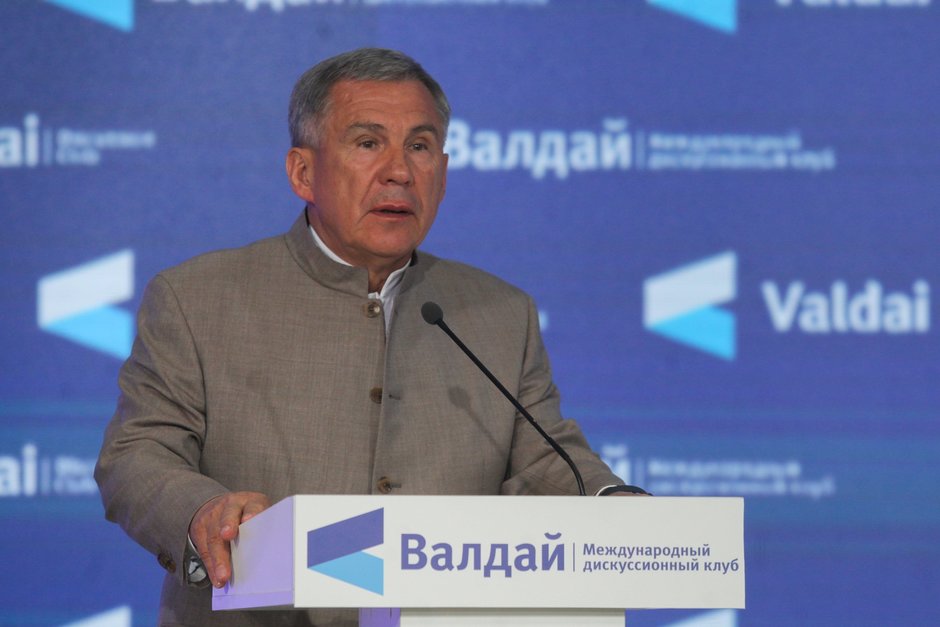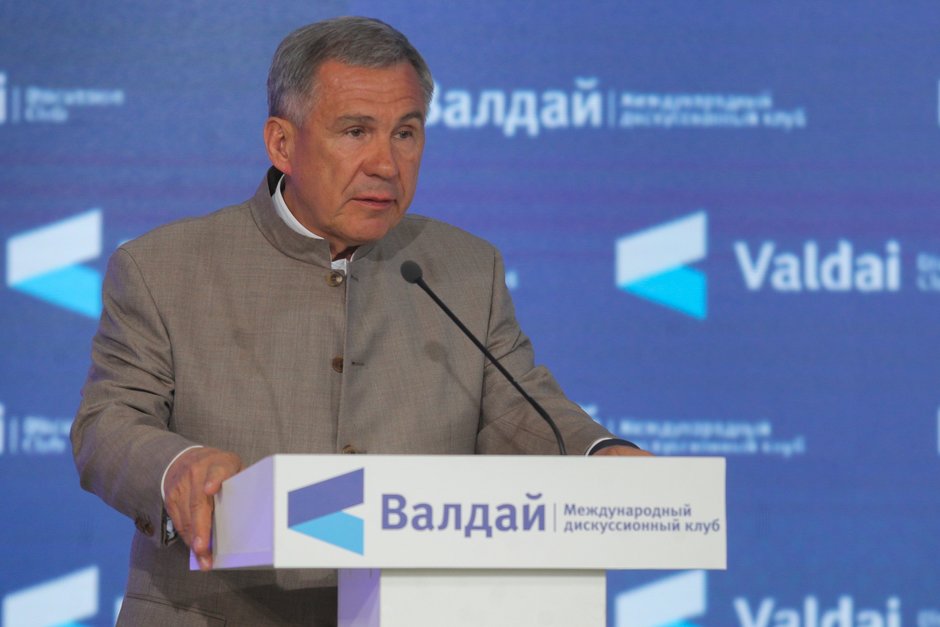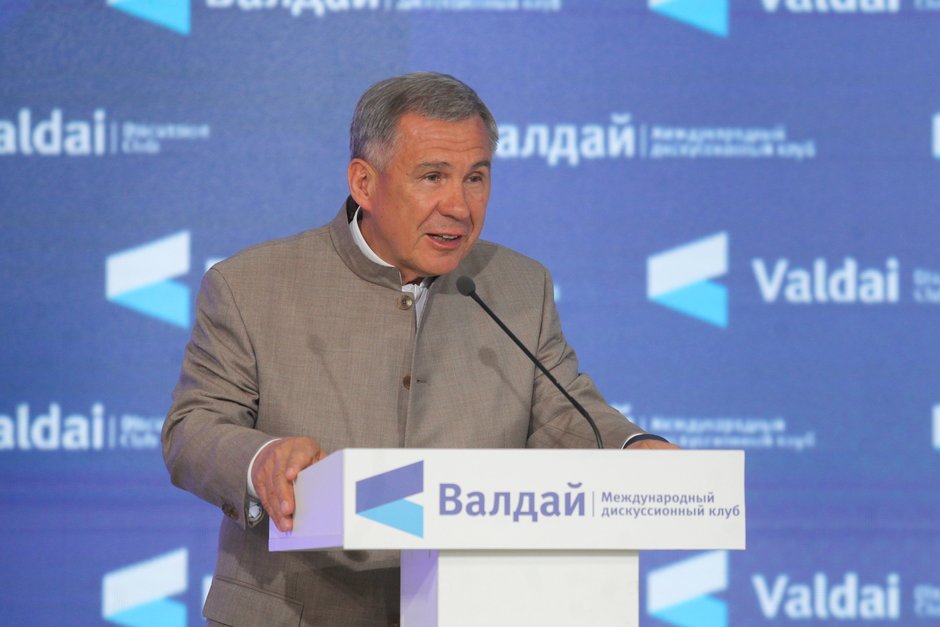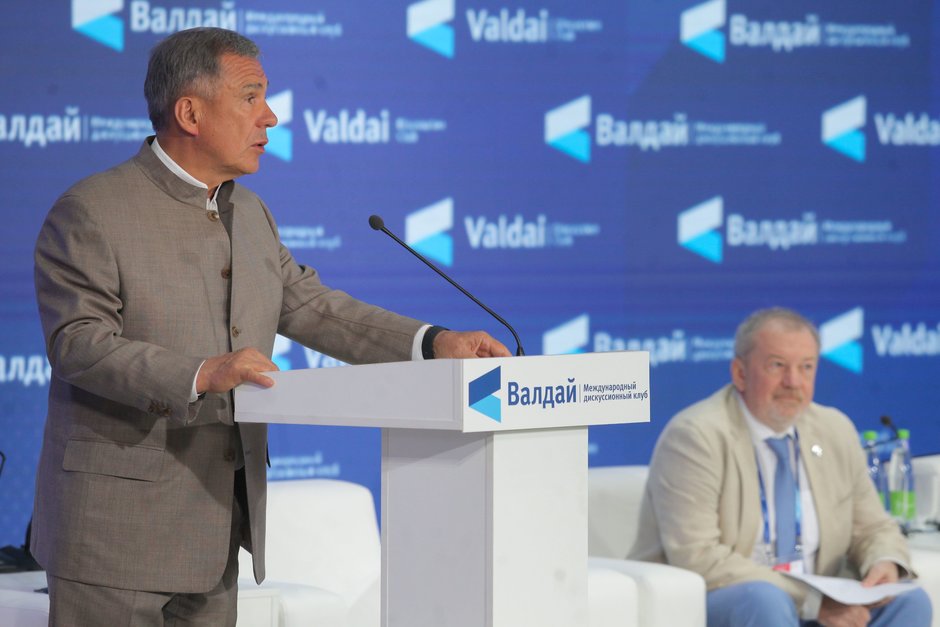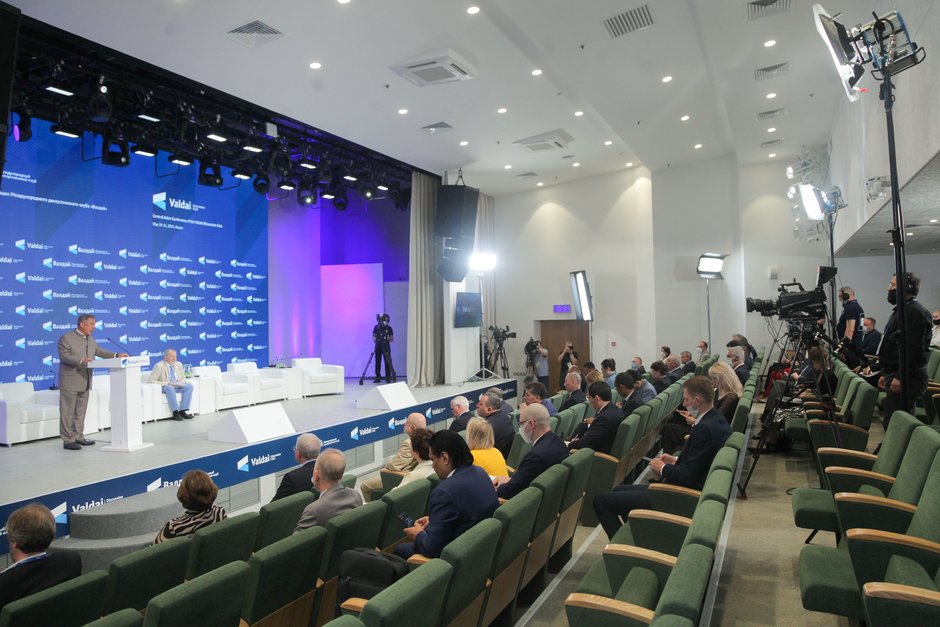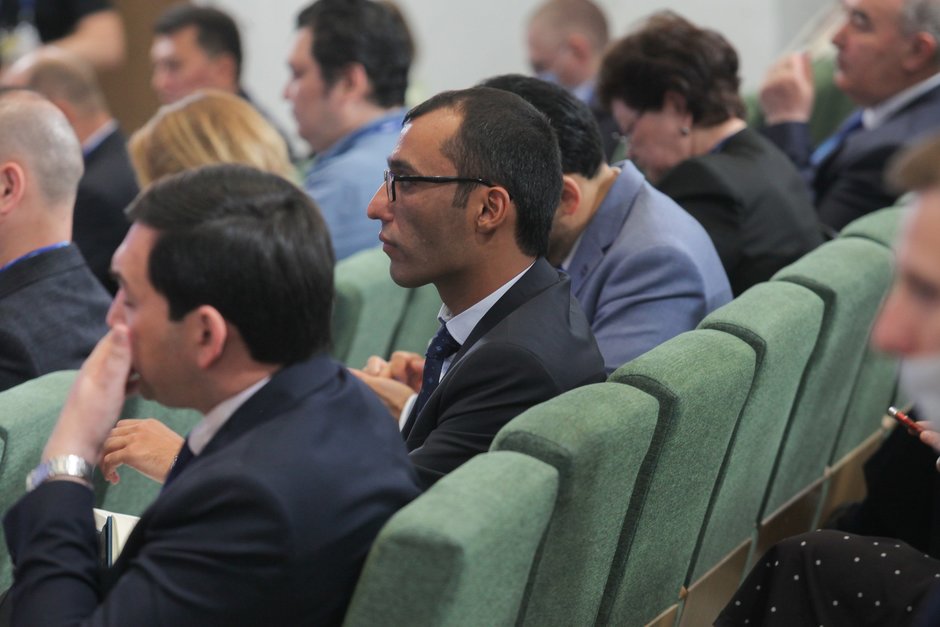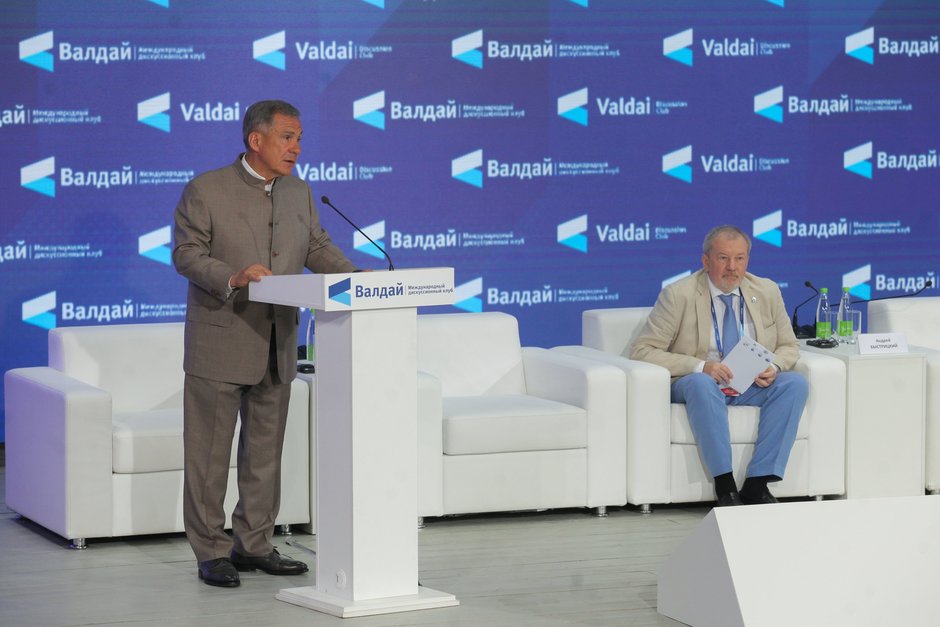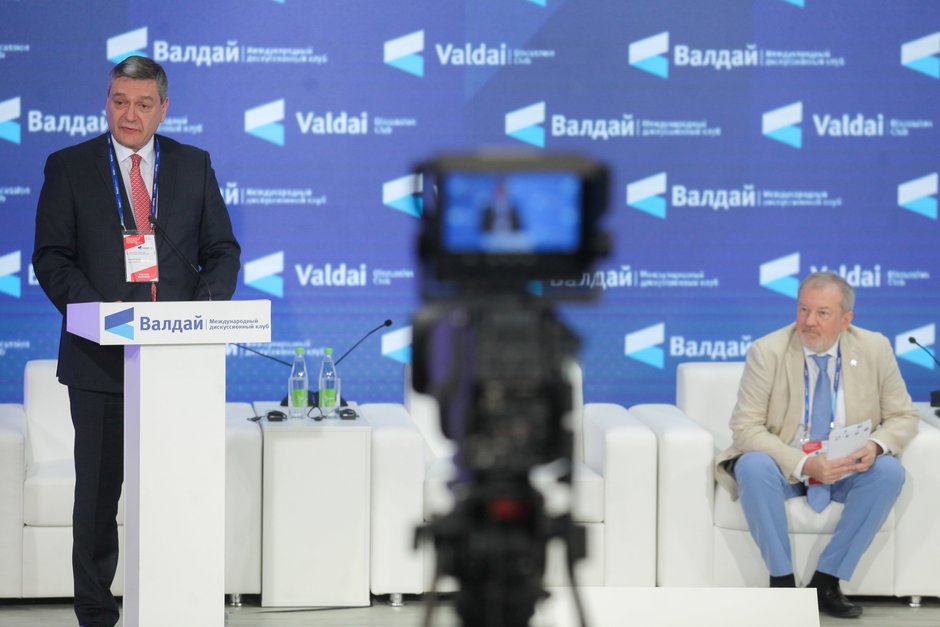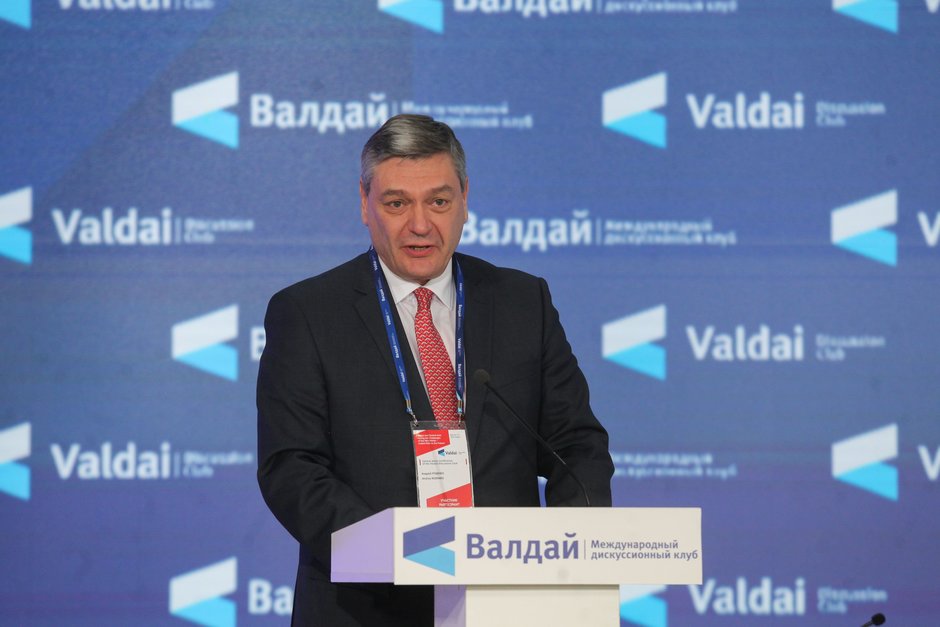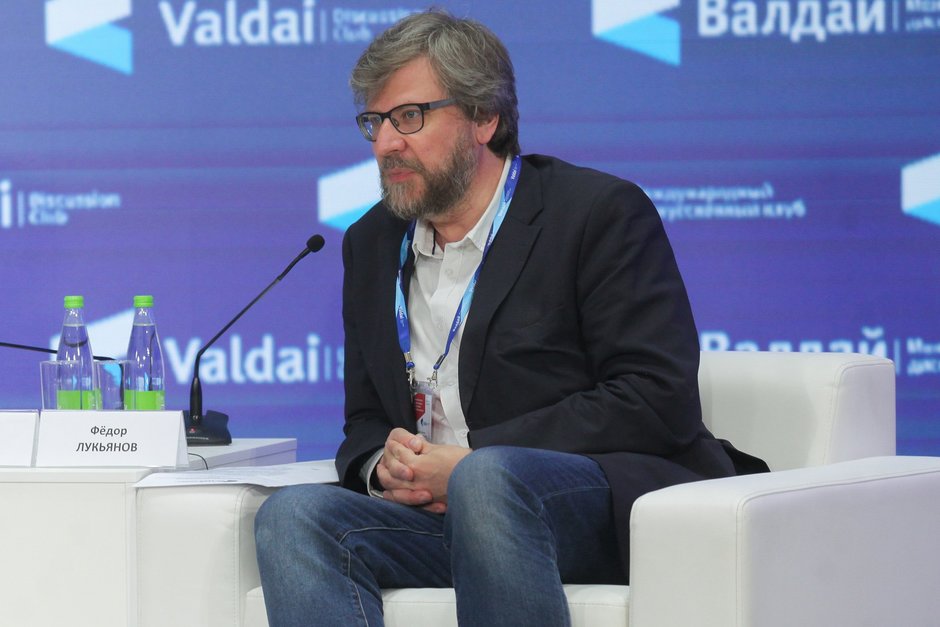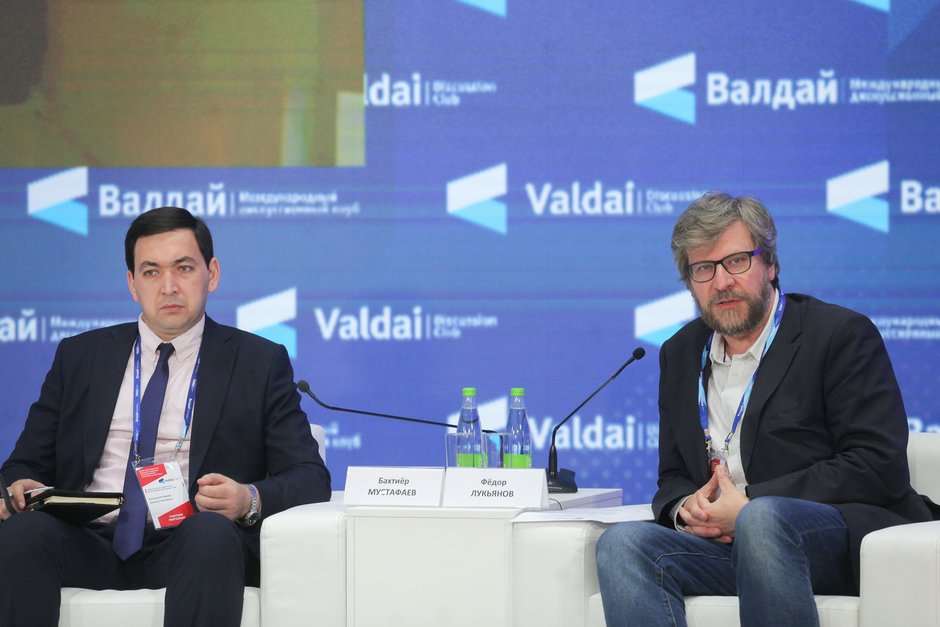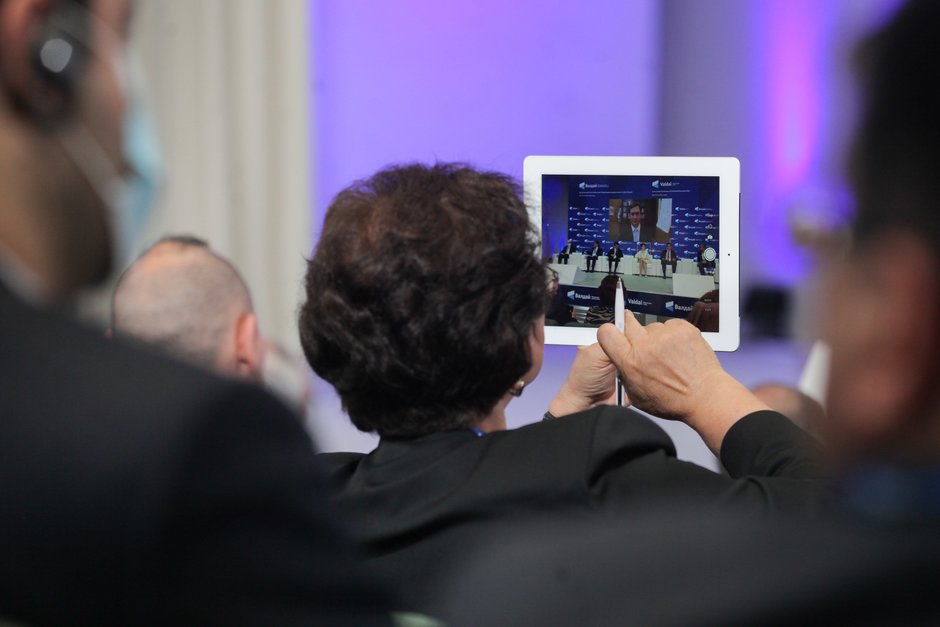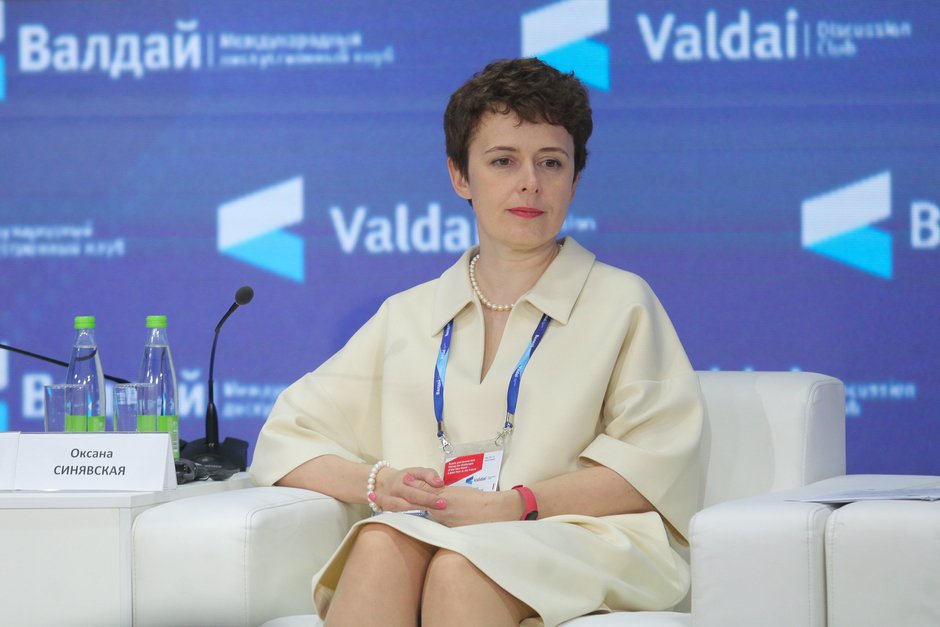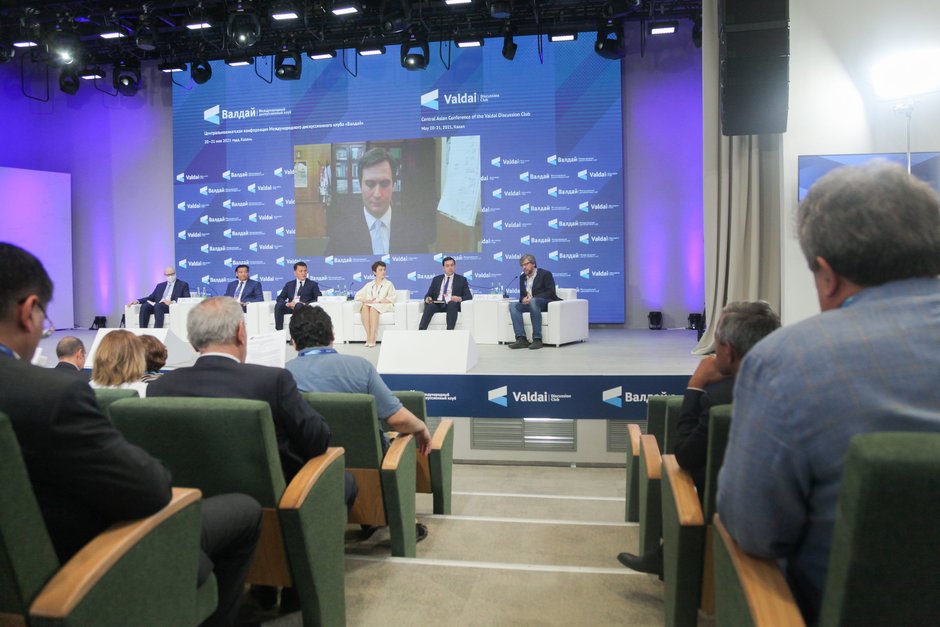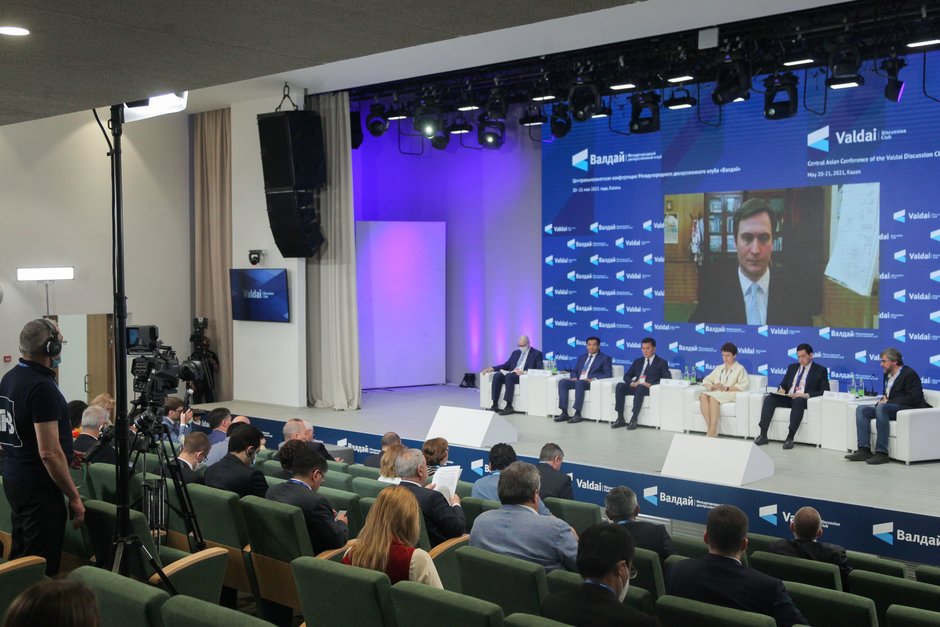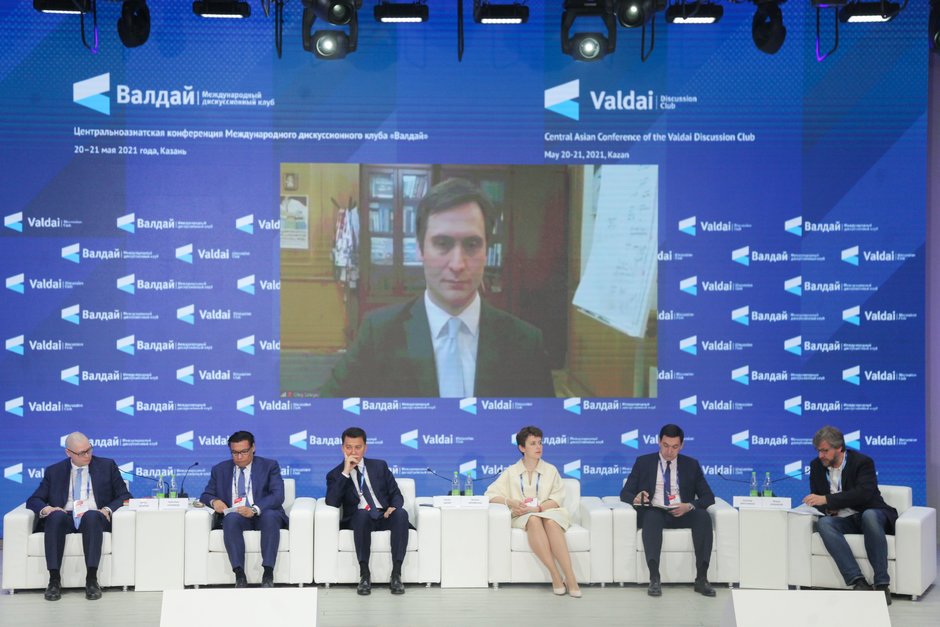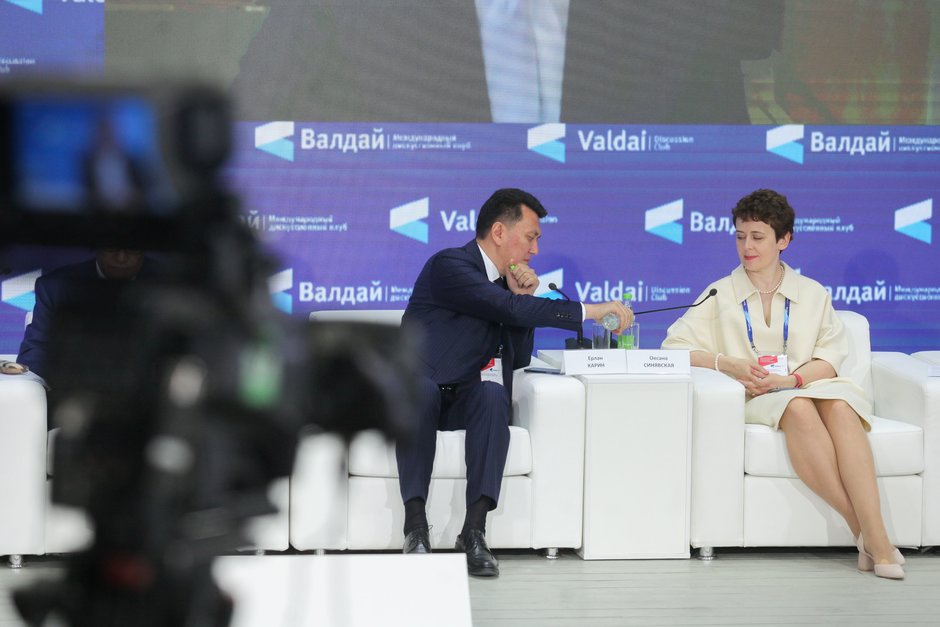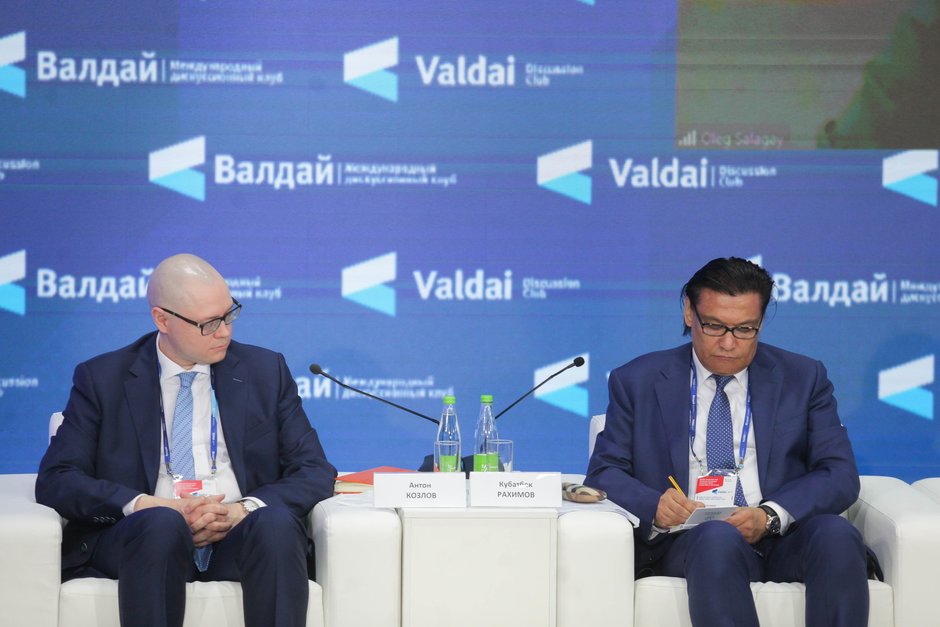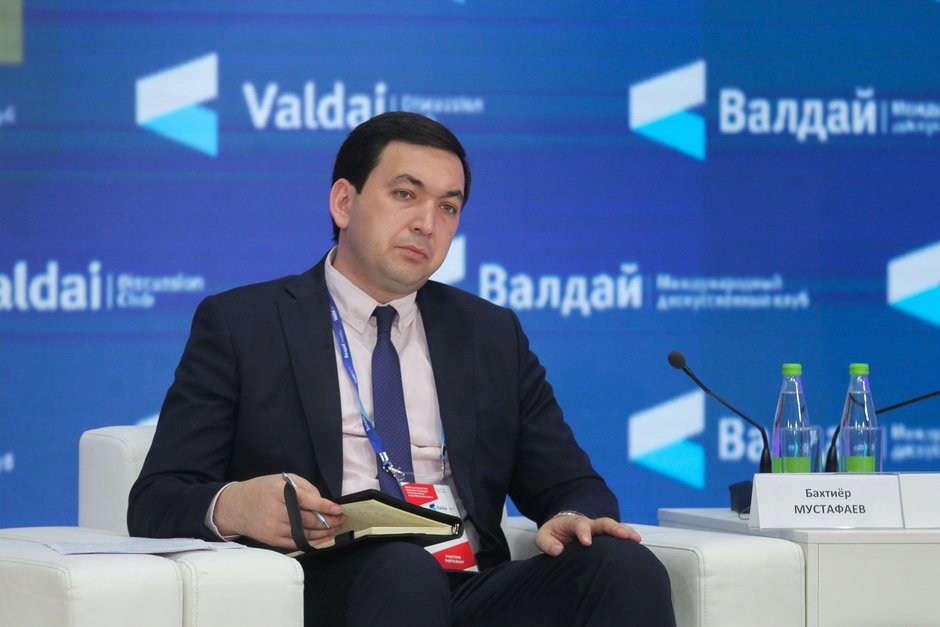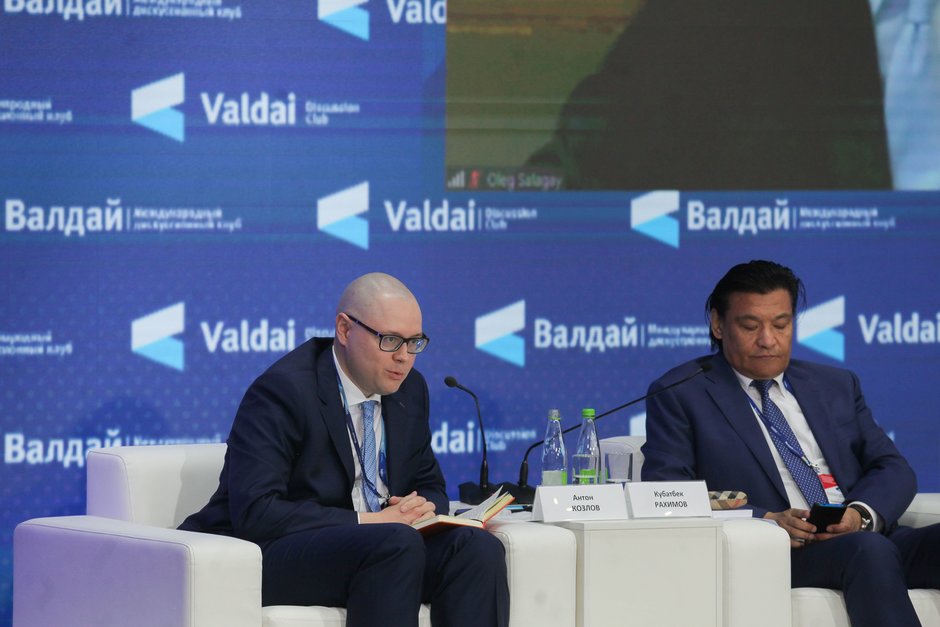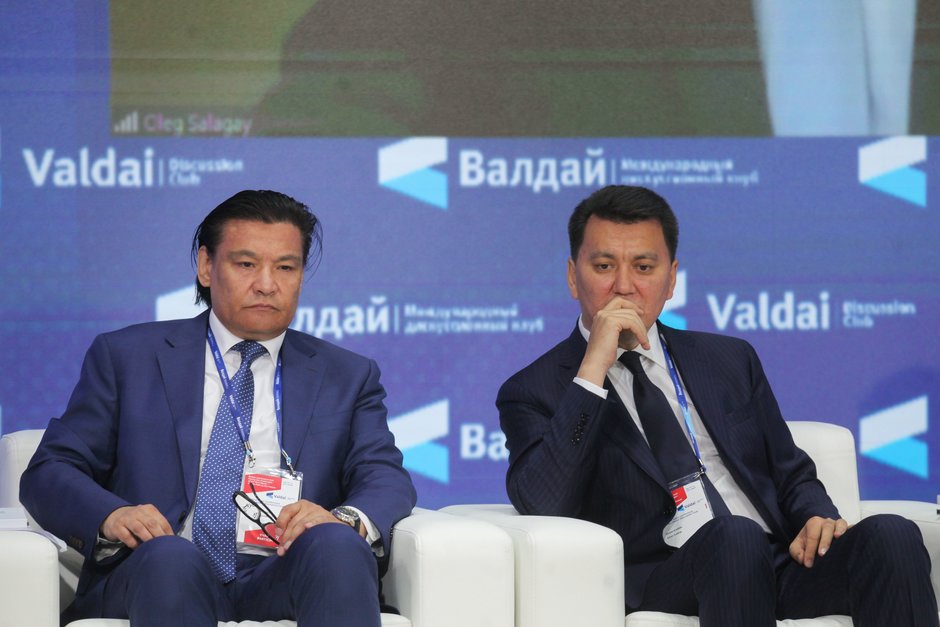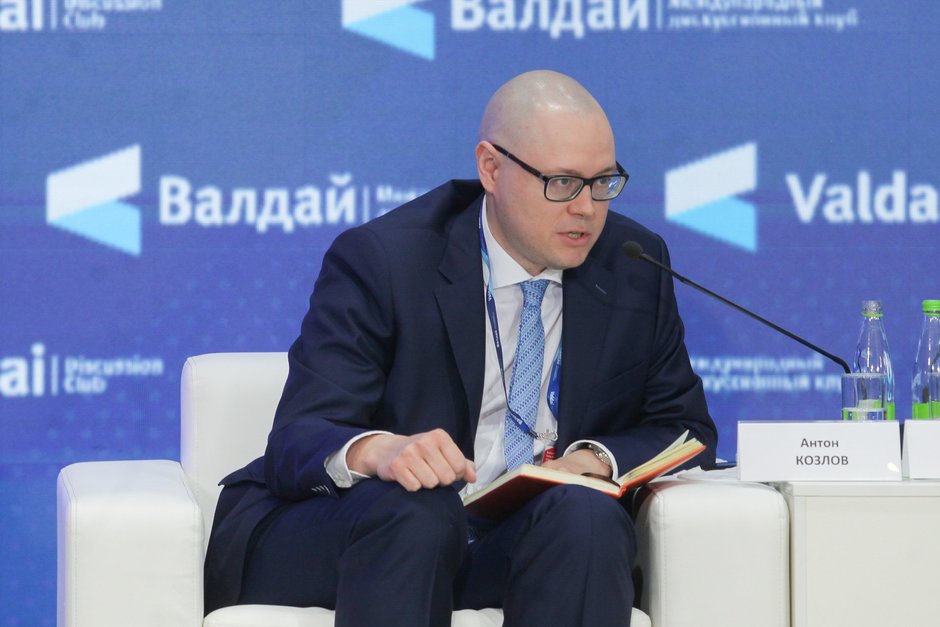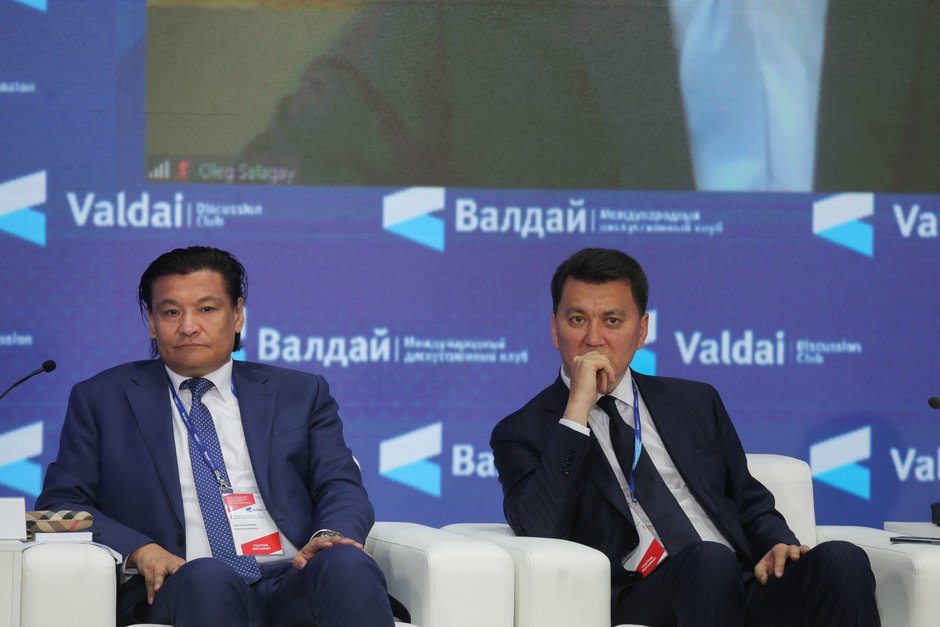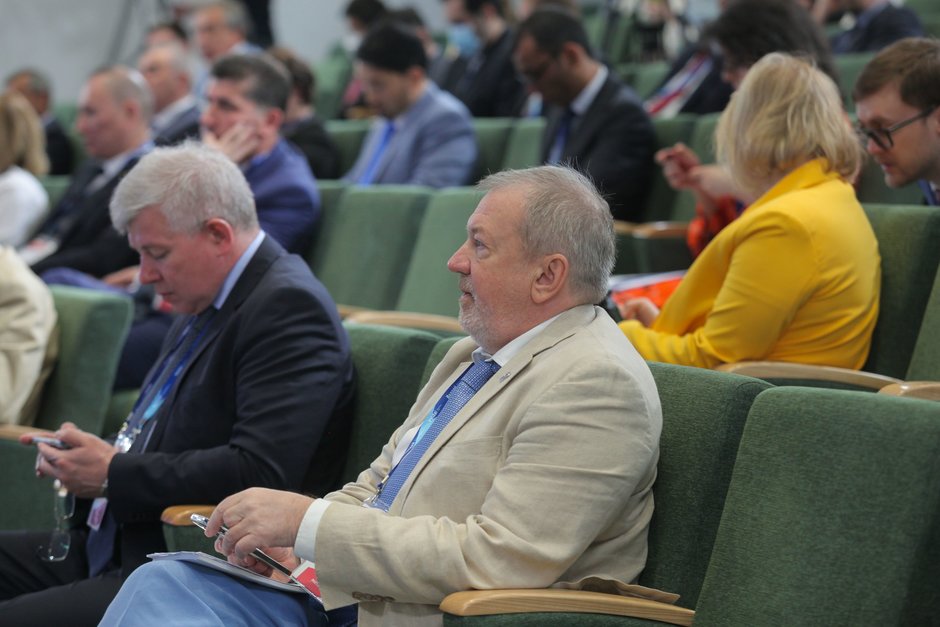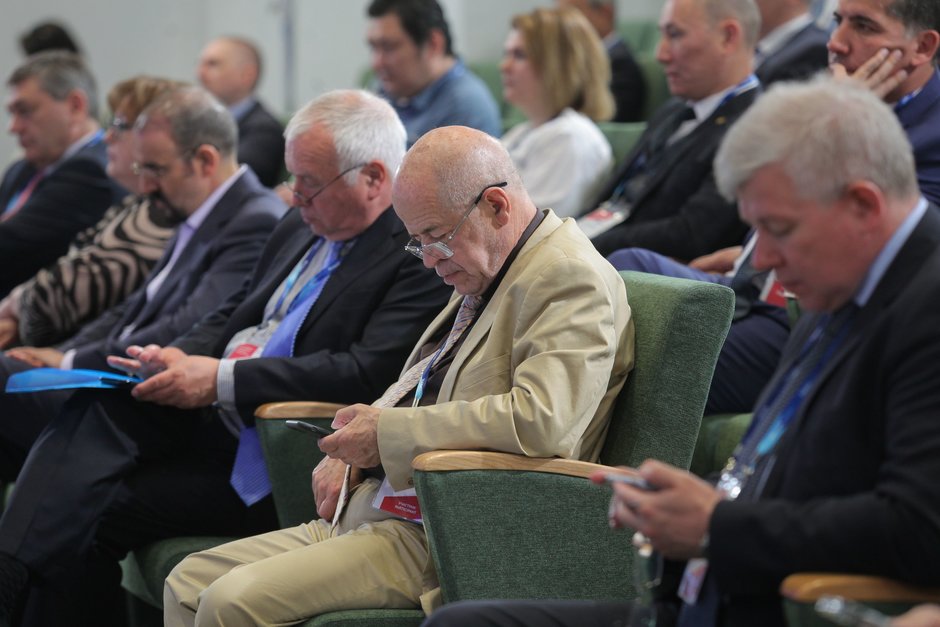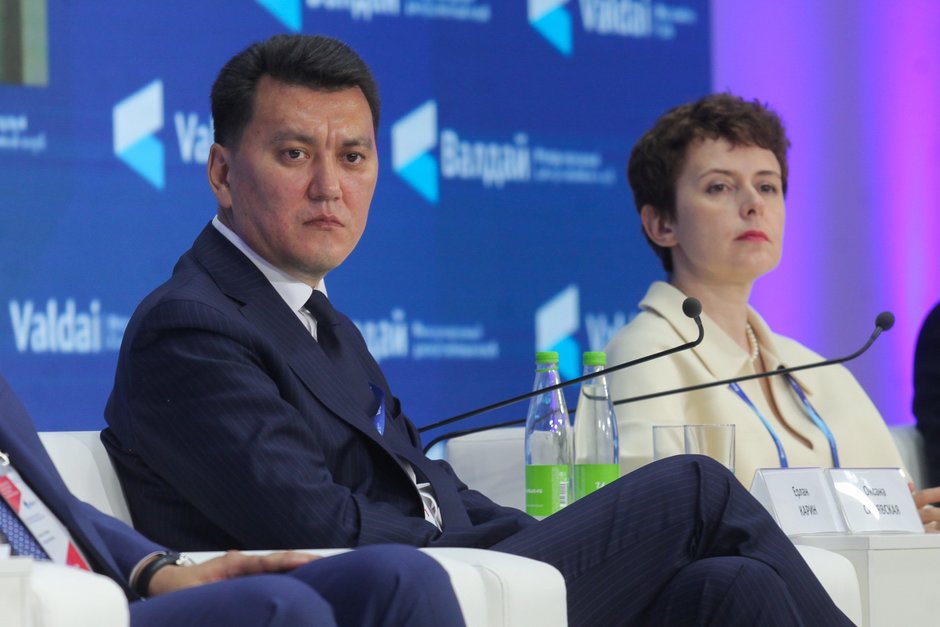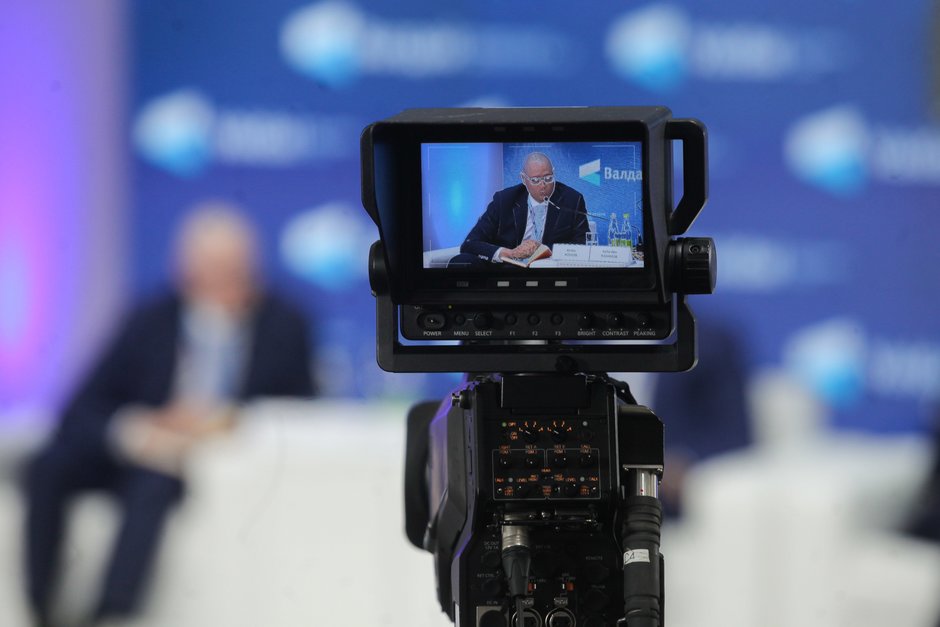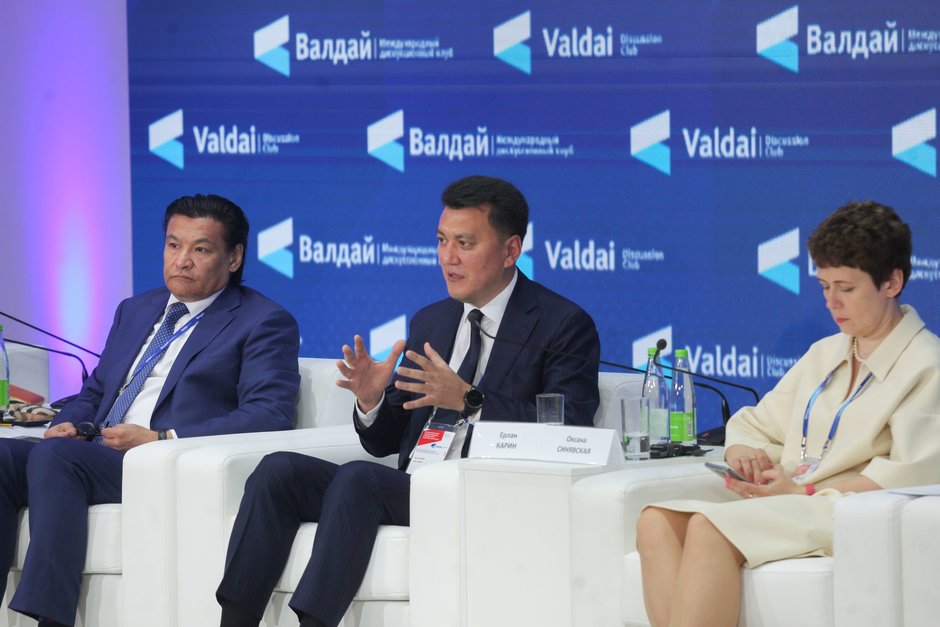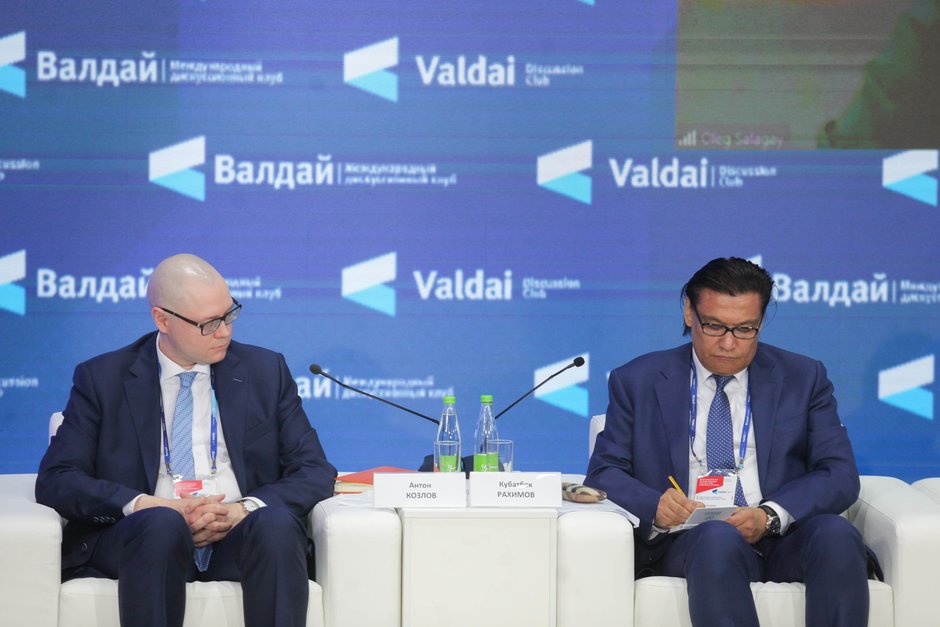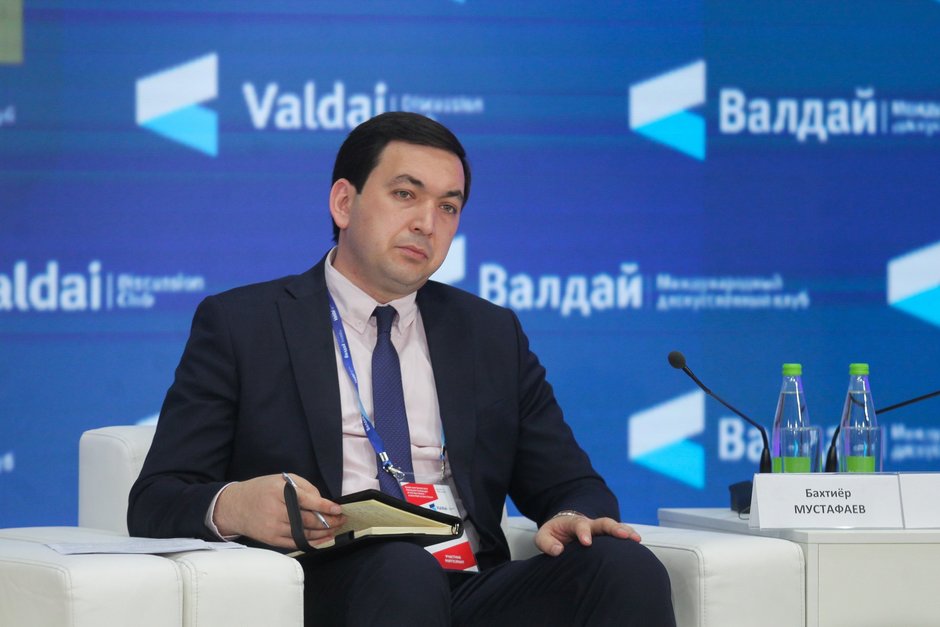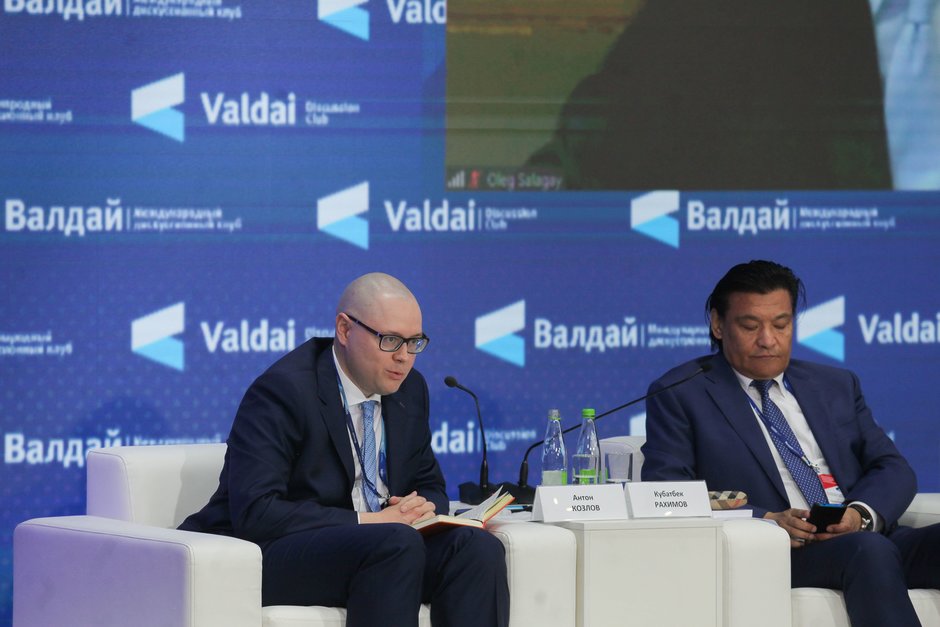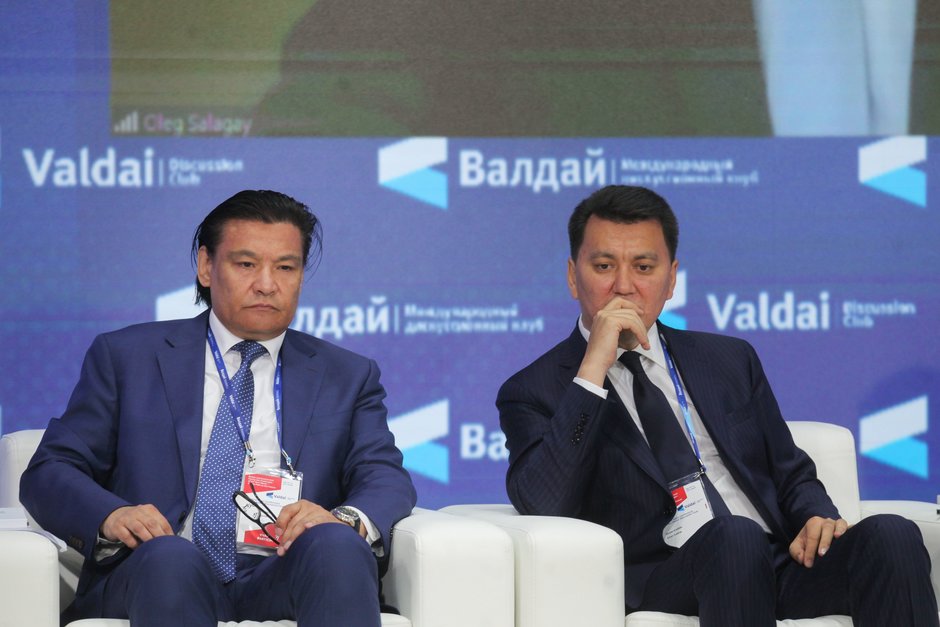‘Eurasia is acquiring new meaning’
Experts of Valdai International Club discussed the impact of the COVID-19 pandemic on countries of the Eurasian Union
Valdai International Club opened in Kazan on 20 May. The challenge for the economy and society around the world — coronavirus pandemic — became the main topic for discussion: Russia and Central Asia after Pandemic: How did We Pass the Stress Test? Representatives of Russia, Kazakhstan, Kyrgyzstan and Uzbekistan shared their experience of handling the trials COVID-19 brought. The conclusion each of the speakers voiced is clear: the pandemic became a driver to strengthen relations between countries. Head of Eurasia Centre for Strategic Developments Kubatbek Rakhimov thinks that this “pandemic is purifying and creative in nature”. Realnoe Vremya’s correspondent listened to the opinions of politicians who participated in the first session of the Kazan conference.
The pandemic didn’t drastically change the global agenda
Before the beginning of the first session of the international club, Tatarstan President Rustam Minnikhanov and Vice Minister of Russia’s Ministry of Internal Affairs Andrey Rudenko gave their welcome speeches to participants. Rudenko stressed that the trade and economic cooperation between Russia with Central Asian countries actively developed — the total amount of accumulated investments is nearing $50 billion ($36 billion in Kazakhstan, over $10 billion in Uzbekistan, $1,5 billion in Tajikistan). This refutes the opinion that Russia doesn’t have economic interests in this region and that Russia is allegedly going to leave these states. The total commodity turnover between Russia and Central Asian countries, according to Rudenko, grew up to $28 billion in 2020, while the number of joint ventures in nearly all spheres of the economy that operate quite successfully exceeds 10,000.
Rustam Minnikhanov welcomed the audience in Tatar and noted that Tatarstan also “ actively participated in processes of Eurasian integration, implemented joint economic projects with Central Asian countries, while strong trade and economic links help reinforce relations with Central Asian states”. He stressed that hosting the Valdai international conference precisely in Kazan was symbolic because “our republic is an example of centuries-old dialogue between cultures, a place where the East and West meet”, “the stability and good neighbourly relations between representatives of different nations and religions is a subject of work of the government”, while “the powerful economic potential and effective interaction with different countries and regions are components of Tatarstan’s success”.
Council Chairman of Valdai club’s Foundation for Development Andrey Bystritsky also emphasised the meaning of Tatarstan in trade and economic cooperation between Asian countries and Russia.
“Kazan is a crucial point of the important process of global transformation. This nucleus of Eurasia now plays a role of some element of the whole world in general.” According to him, the world is on its way of transformations that are “painful, contradictory, and their results may be ambiguous”.
Each of the speakers of the morning session talked about the big impact of the coronavirus pandemic on the world’s most countries’ life and economic layout. They said that the world was taking a new road, while the lessons COVID-19 gave us, especially the first one, at the height of the pandemic, needs to be rethought and examined for long. “The pandemic didn’t drastically change the global agenda and didn’t create new tendencies. But all we had before accelerated, worsened as if with the help of a powerful catalyst, became obvious, there are fewer illusions and more understanding of those processes that are taking place,” thinks Fyodor Lukyanov, moderator of the discussion and leading researcher of Valdai International Discussion Club.
“As the global palette is shifting to the East, Eurasia, which has always been the heartland of global politics, is now acquiring new meaning. If the heartland used to be considered only as an object of some countries’ actions, now, undoubtedly, Eurasia should and will take shape.”
70% of deaths in the world in 2020 have nothing to do with COVID-19
Vice Health Minister of Russia Oleg Salagay emphasised that COVID-19 “became an unprecedented challenge for the whole world”, provided medical statistics: 163 million cases of coronavirus have been registered since the beginning of the pandemic, 1,3 million people received medical advice at the same time at the peak of the pandemic. 279 beds were set up, the list of recommendations to treat COVID-19 was reconsidered and updated 11 times. Moreover, earlier, some documents used to be adopted for several months and even a year.
According to Salagay, the coronavirus pandemic became a kind of development driver of some aspects in medicine: for instance, online health care technologies went up — medical institutes and research centres conducted over 72,000 consultations a year, other openness standards arise — anybody can see the statistics on the incidence and the death rate from COVID-19 on a special website in the public domain. Among negative consequences, he named changes in people’s psychology: the pandemic had a certain effect of an injury. As a consequence, tobacco and alcohol consumption ramped up around the world.
At the same time, the vice minister noted that 70% of deaths in 2020 had nothing to do with COVID-19 but other diseases that claimed the lives of 40 million people. Coronavirus became deadly for 3,3 million people.
However, the pandemic didn’t hurt some sectors of the economy. Director of the Department of Foreign Projects and International Cooperation at Russian Railways PJSC Anton Kozlov stressed that coronavirus didn’t seriously hit the economy of the transport company: 70% of last year’s revenue is provided by freight transportation, “40% of freight come to us, go from us and through us,” says Kozlov. While losses accounted for just 2,7% — due to lower passenger traffic. But passengers, he added, are gradually returning. This year, Russian Railways plan to reach the bar of 830,000 transit containers.
Also, the railway company is going to develop communication and create eight agricultural logistic centres in Uzbekistan. They are contemplating creating transit from South Asia via Afghanistan. By Kozlov’s estimates, “it is a big audacious idea”. He added that the construction of railways en route China — Kyrgyzstan — Uzbekistan arouses great interest too.
Every EAC country has its own path of fighting COVID-19
Representatives of Central Asia — Kazakhstan, Uzbekistan and Kyrgyzstan — made their own evaluations of 2020. Aide to Kazakhstan’s president Yerlan Karin took the floor first. He explained in detail how the pandemic’s scenario unfolded in the republic, what measures the government took, that several new reforms and laws were adopted by simultaneously breaking tensions in society thanks to social support measures. Kazakhstan is switching from a format of state programmes to national projects with certain deadlines. The country has registered 385,000 cases of COVID-19 since the onset of the pandemic.
As for methods of combating coronavirus, like in Russia, they imposed lockdown and emergency, sanitary restrictive measures. A vaccination campaign has kicked off in Kazakhstan since February — three vaccines are used on its territory, including Russia’s Sputnik V that is manufactured at Karaganda Pharmaceutical Complex, Kazakhstan’s KazVac and an Arab vaccine made on a Chinese platform.
After that, Vice Director of the International Institute of Central Asian Research Bakhtiyor Mustafayev presented a general report on the influence of the coronavirus pandemic on Central Asian countries. According to him, the pandemic wreaked havoc on the world economy and exacerbated tensions on the international stage: according to the UN, the economy shrank by 4%, while the global debt rose to a record $230 trillion, which is 3,5 times above the world’s economy. He also noted that the creation of a vaccine started to be used for political purposes, raise technological competition in the world. Also, he especially stressed the cooperation with Russia that has always provided support to the countries of the Central Asian region.
At the moment, Mustafayev said, 0,3% of the total incidence became victims of COVID-19 in the region’s countries, which is 0,2% of all deaths from this viral infection around the world. As for the economy, GDP decreased only in Kazakhstan and Kyrgyzstan, the other Central Asian countries kept their growth pace.
Kyrgyzstan as anti-example that should be considered
Perhaps, the most interesting speech was delivered by Kubatbek Rakhimov, ex-adviser to Kyrgyzstan’s prime minister and today’s head of Eurasia Centre for Strategic Developments. He claimed that “if the pandemic’s crisis didn’t exist, we should have made it up”. Why?
“Because 2019 was the year of preparation for either a war or wars. Remember the situation with oil. What turned out in financial markets in futures was the limit of the existing economy, negative oil prices. And the pandemic, in fact, became good for the world economy, if we take the global result.”
In his opinion, Russia, South Korea, China and Pakistan as a country with a mobilisation economy, when mobilisation takes place according to clear and understandable algorithms were the most successful to cope with the coronacrisis. While such mechanisms didn’t work in the USA.
He thinks that the pandemic “helped” transfer people to digitalisation — the lockdown was imposed, and Zoom became an absolutely popular product in the blink of an eye, and its owner became a billionaire, though, in fact, it was quite a simple programme.”
The speaker expressed a doubt: is this pandemic cleansing or creating something? Rakhimov is sure public workers became absolute winners of this period because “all liberals and libertarians addressed public institutions asking to save them, introduce restrictions, treat them and so on.” As a consequence, heated discussions that took place with libertarians have stopped in those countries now.
The head of Eurasia thinks that last year demonstrated the world a prototype of social society, nearly communism, if not socialism, when states introduced support measures: “Stay home, we’ll give you money.”
Rakhimov sadly complained that during the pandemic, the Eurasian Economic Union was knocked down by the WHO when each country took its own road in the fight against COVID-19: “In Belarus, Lukashenko said that coronavirus can be treated with vodka and sauna, this is how he persuaded his citizens. Kyrgyzstan and Kazakhstan quickly switched to the WHO’s requirements, Tajikistan didn’t recognise coronavirus.”
Kyrgyzstan suffered from coronavirus and recommendations of the WHO in Central Asia the most, he stressed, where power and the constitutional layout forcedly changed.
“If we have a look at the statistics on the excess death rate, yes, it includes a lot of people who passed away from COVID-19, but how many people died from stress, from improper treatment because beds in hospitals were repurposed to combat coronavirus.”
He sees the method of treatment and hospitalisation of patients with coronavirus recommended by the WHO as the reason for the high death rate: “We received a huge blow on medicine, people dying on the street, while asymptomatic patients but with a positive test for COVID-19 were in the hospital. At the same time, seriously ill patients with a negative test but double pneumonia simply weren’t admitted to hospitals. And here the blind compliance with the WHO’s requirements did more harm at least in Kyrgyzstan than the non-compliance with these measures.” Rakhimov was also indignant about the actions of the new Kyrgyz authorities in the distribution of economic aid of the International Monetary Fund that gave the country $242 million. “And instead of allocating the money to fight the pandemic, they filled budget gaps, they paid salaries and pensions.”
As the speaker thinks, Kyrgyzstan is an anti-example of actions during the pandemic, and this experience should also be considered — what not to do to get such sad outcomes. In fact, during their speeches, the speakers agreed — to strengthen the coordination of the external perimeter of EAC countries, elaborate general algorithms and synchronise joint actions during the pandemic, not to act alone, thus harming the economy and the population of these countries.
